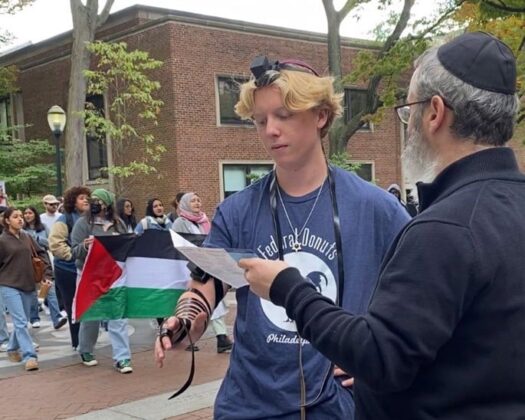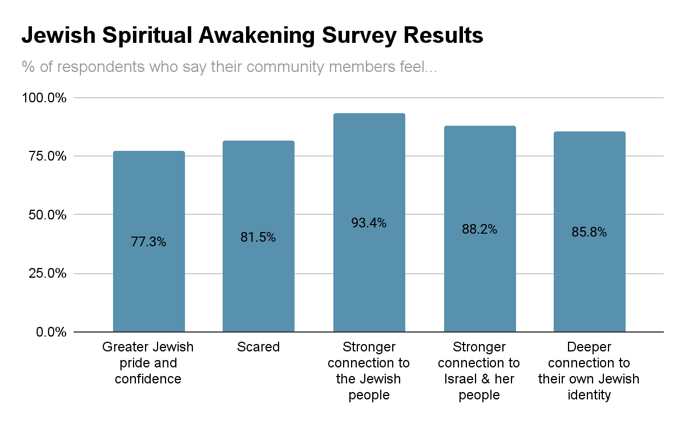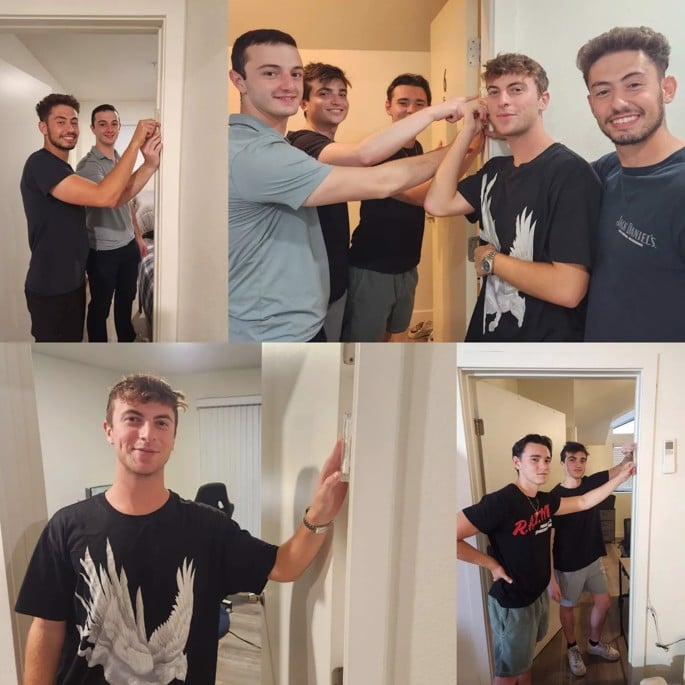
Amid War, Terror and Antisemitism, Survey Reports Spiritual Awakening of American Jewry
by Moshe New – chabad.org
In the wake of the Oct. 7th terror attacks in Israel and the subsequent war, Jewish communities in the United States are witnessing a huge surge in Jewish engagement, according to a new survey released by Chabad.org. The survey, conducted among Chabad-Lubavitch rabbis across America, found that a vast majority of respondents have seen an increase in attendance at Jewish programs and services, as well as a heightened sense of Jewish pride, connection to Israel, and stronger Jewish identity among community members.
The survey results paint a picture of a Jewish community that is responding to this fraught moment with a renewed sense of solidarity and faith. Rabbis reported that people are lighting Shabbat candles, purchasing and donning tefillin—some for the first time—saying the Shema prayer daily, baking challah, wearing identifiably Jewish jewelry such as Magen Davids, and attending synagogue more regularly. The respondents noted dramatic growth among Jews who in the past had attended synagogue once a year, if at all, and who had generally expressed disinterest in Jewish life, who are now exhibiting a new desire to connect with their Jewish heritage and other Jews.
The survey also highlights the emotional impact the recent events have had on Jews around the country. Many respondents reported that people in their communities are feeling scared and vulnerable, but that this fear has also led to a strengthening of Jewish identity—some of it public facing—and unity. In the words of one Illinois rabbi, “People are feeling confused about why they care so much… When people are touched to their core, their core is responding in ways people are not used to.”
With the survey finding that more than 86% of rabbis are seeing an increase in attendance at synagogue and programs, and a staggering 98% seeing an increase in personal practice related to Jewish traditions and observances among community members, it is clear that in the face of rising antisemitism, a wide spectrum of Jews are choosing to increase in acts of Jewishness as opposed to laying low and hiding their identity.
Summary of Results
- 77.3% of respondents report that they have seen a stronger sense of “Jewish pride and confidence” among community members.
- 81.5% of respondents say that people in their communities have increasingly been feeling “scared.”
- 93.4% of respondents say that they are witnessing a stronger feeling of “connection to the Jewish people or desire to connect to other Jews” among community members.
- 88.2% of respondents say that people in their communities have “a stronger connection to Israel and her people.”
- 85.8% of respondents say that community members have been experiencing a “deeper connection to their own Jewish identity.”
The 211 survey respondents include Chabad-Lubavitch rabbis representing communities in all 50 U.S. states, ranging from cities and towns with robust Jewish infrastructures to areas with a minimal Jewish presence.

In addition to offering a glimpse into the numbers that are driving this Jewish awakening, rabbis were asked to provide particular anecdotes, if any, pertaining to any observed changes in Jewish practice. The anecdotes paint a powerful picture of the indomitable Jewish spirit, the real stories of the real people behind the survey data.
One rabbi in Vermont shared that a woman asked where she could purchase a large Magen David necklace so she could publicly show that she’s Jewish. Another rabbi from California recounted how a 22-year-old man who had never before in his life celebrated any Jewish activity came to him right after news of the terror attack broke, telling the rabbi he couldn’t stop crying. Though he had no prior engagement with the Jewish community, the war, in his words, “reawakened” the Jew within him, and he felt compelled to act on it. He has since come to Chabad to put on tefillin for the first time in his life.
A Florida rabbi reported that a man who only attends synagogue when he has a yahrzeit, or anniversary of the death of a parent, has begun attending Shabbat services every week. He explained that right after the Oct. 7th attack he resolved to put on tefillin each day. He then realized that he should recite the full prayers. On Shabbat, when he can’t lay tefillin, he decided to attend services.

In Georgia, a rabbi tells of a woman who shared with him that she had not lit Shabbat candles in many years but had dug her candle sticks out of the closet and begun lighting them every week on Friday before sundown.
These are just a few examples of the many ways in which Jews are responding to the recent attack on their brethren in Israel, the war, and the subsequent explosion of antisemitism at home. The survey results strongly suggest that these events have sparked an awakening of the Jewish spirit, with people from all walks of life seeking ways to connect with their Jewish heritage and community.
Chabad.org’s survey was conducted in conjunction with the upcoming International Conference of Chabad-Lubavitch Emissaries. The conference is the largest gathering of rabbis in the world and will see some 6,500 rabbis and Jewish leaders come together in New York from Nov. 9 to Nov. 12. The conference provides a timely platform for these rabbis and Jewish leaders to discuss how to channel this new-found inspiration to combat the global spike in antisemitism. Their shared experiences and insights will be invaluable resources for their colleagues as they seek to strengthen their communities and address the unprecedented challenges confronting the Jewish world.









